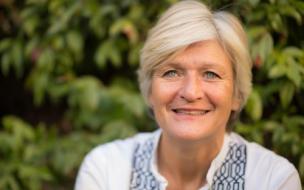The UK-based school is seeing a 65 per cent increase in enrolment for the programs’ second intake, and graduates are going on to achieve executive positions in the creative world.
“Traditional MBA courses didn’t appeal to me, they seemed too general. After ten years in the music industry, I wanted to be certain that an MBA would take my skills to director-level,” says Johann Gouws, a graduate of the program who is now head of marketing at Faber Music.
Part of the reason, says Helen Gammons, the program’s director, is the flexible structure.“The structure we put in place is tailored perfectly to the sector, and is designed for people working full-time. Nine-to-five just doesn’t exist,” she says.
Demand for part-time and flexible MBA study has increased significantly and although criticism is sometimes directed at a supposed lack of networking opportunities, that is certainly not the case with Henley, Helen says.
“The networking we have is designed to be impactful. That’s something I’ve worked hard on since day one,” she says. “We have a senior-level executive committee and the cohort get to meet and network with them from day one.”
MBAs seem to agree. “I chose Henley because they specialise in MBAs for people that have been working for several years – you’re surrounded by people from management positions that can relate the theory you learn to real-life experience,” says Clive Gardiner, a graduate of Henley who is now head of digital and media RNIB.
When Helen helped establish the MBA program, it was the first of its kind. Specially tailored workshops for the music and creative industries have been incorporated alongside the core modules.
“We add a very practical and applied focus alongside the academic piece. This allows for a tremendously rich conversation and workshops to take place,” she says.
Entrepreneurs flock to Henley too, enticed by the prospect of honing industry knowledge, building networks and developing skills without sacrificing time. Some students have even switched industries completely, after coming from traditional backgrounds, and are now running their own artist consultancy businesses.
And it is not surprising; the program has entrepreneurial flavours. Helen has co-owned businesses since 1987. Before Henley, she set up the Berwick St Group and a few years later, she joined the management team in Japanese start-up company Avex Inc, which was regularly the number-one record label and music publishing company by market share in Japan.
She owns a raft of award-winning companies in broadcast, film, video and lighting, including Rotolight.com, and Helen also authored a book on the subject: The Art of Music Publishing, an entrepreneur’s guide.
“Working in the creative sector is exciting; you live on your wits and each day is so different. Developing strong business skills that can support your creativity is a fantastic combination. That’s how and why the MBA for the Music and Creative Industries came about.”
Leading industry figures have backed the course. “Education is about opening your mind. I believe the Henley MBA for the music and creative industry will help us do just that,” writes David Arnold, a world-class English film composer best known for his work in the James Bond films.
Other business schools have tried to launch similar programs, but none are quite the same as Henley’s. It was considered a “world first” – but why has it taken the MBA community so long to cater for the music and creative industries ?
“Other schools call me up and quiz me on that,” Helen laughs. “To start something like this requires someone to be the champion of it, and my experience meant I could act as a bridge between both the academic side of things and the communication process with the sector. “
She credits the help of Professor John Board, Dean of the school, whose belief in her was solid from the beginning.
Henley’s MBA goes hand-in-hand with professionalising the industry. “The culture of the industry was very much a case of learn as you go and being mentored from within. This was my personal experience too,” Helen says.
“The music industry is a business that has and still is undergoing immense change. Change across the creative industries is evident everywhere.” That change is key to enriching the industry, she adds.
She may be an entrepreneur, but Helen studied an MBA too. She saw first-hand what it can do for a creative career. “It unleashed my potential. It was great to understand the big picture,” she says. “Most recently my MBA skills helped me close investment into the family business, at a time when funding from banks is in short supply.”
The creative industries are constantly evolving and changing. And that attracts people to the program, Helen says. “I believe to go all the way to the top you will need to demonstrate well-developed strategic business skills, exemplary leadership skills, and be attuned to technology drivers and business issues,” she says.
Clive, who graduated from Henley, agrees. “The music industry is in a tremendous period of change, empowered by new technologies and different customer behaviour. And there is a tremendous amount of skill-set that needs to be broadened and enhanced in order to take those opportunities,” he says.
There are many challenges ahead, however. The rise of the Internet as a tool for business is one of the biggest developments in the creative sectors. In the music industry, for example, new artists are selling millions of downloads online, by-passing big companies that previously acted as “gate keepers”.
“DIY artists” can market themselves online and can “develop significant customer engagement”, Helen says. “Perhaps there is a new conversation to be had between artists and labels around transparency and principles of governance,” she says.
A new series of events called ‘Creative Dynamics’ have been developed for the program, to provide engagement with industry on cutting edge topics, ranging from music & brand partnerships to analytics with attitude, the latter a day co-delivered with IBM and Google.
Over 350 middle and senior executives have attended Henley’s Creative Dynamics days in the last year, including execs from Sony Music.
“It’s sometimes good to get away from the cut and trust of what we do every day. These kind of forums are useful to give us a chance to speak to our peers, colleagues and prospective clients, in an environment that is conducive to thinking, rather than trying to tear shreds out of each other,” says Fred Bolza from Sony Music UK, who attended a recent Henley event.
The school is expanding their reach on an international level. Henley is launching a program in South Africa in May, Helen says, and there is a very strong possibility there will be an intake in Hong Kong within the next 18 months.
“It is picking up momentum internationally,” she says. “It’s a fresh conversation and provides the participants with a dynamic MBA that fits their needs.
“In a world changing so fast, this MBA program is relevant and applied.”
RECAPTHA :
32
9a
fd
6f








